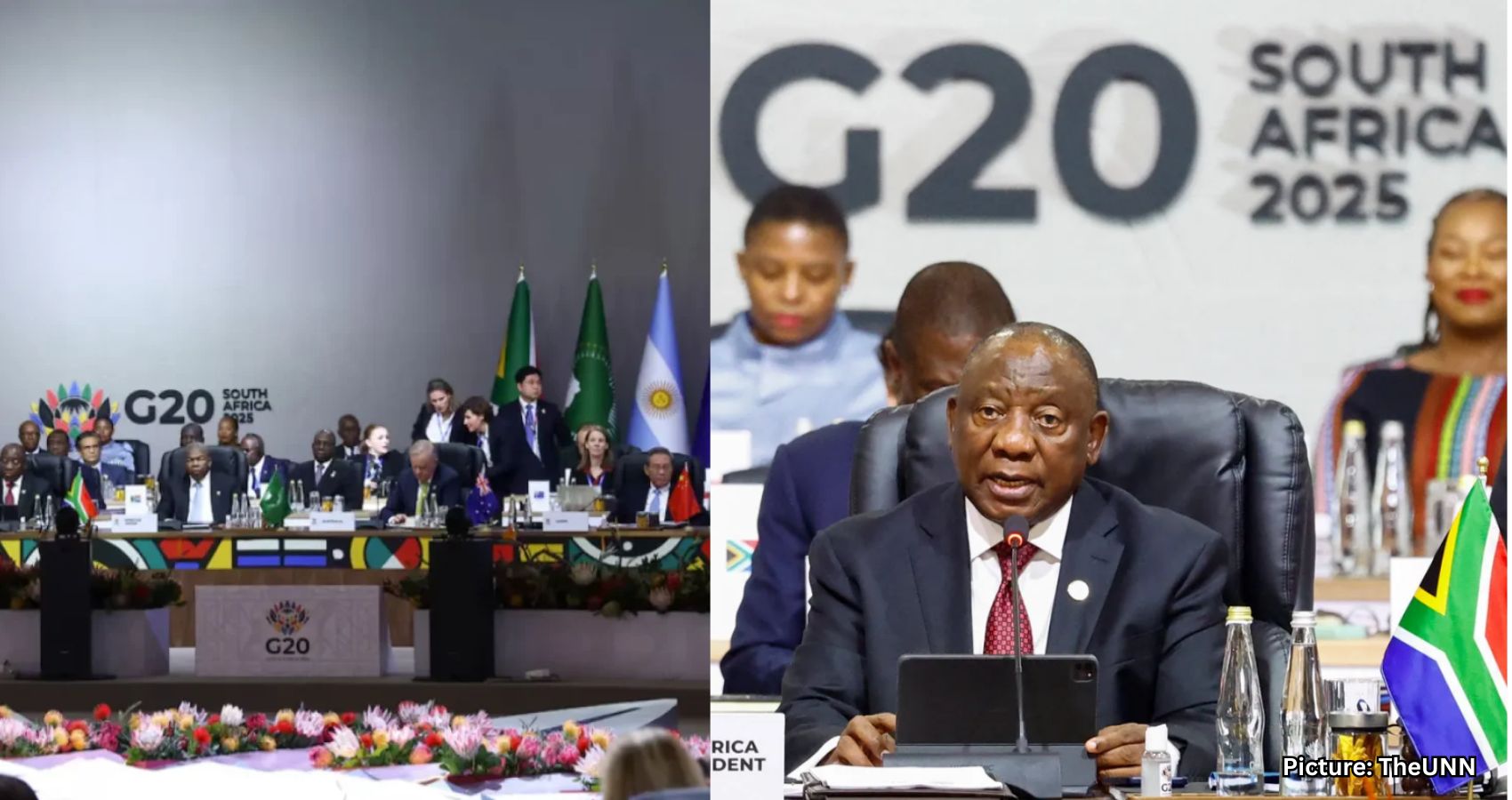The G20 summit in South Africa adopted its final declaration on Saturday, despite a U.S. boycott and objections, highlighting escalating tensions between Pretoria and Washington.
JOHANNESBURG / WASHINGTON, Nov 22 — The G20 summit in South Africa concluded with the adoption of its final declaration on Saturday, despite explicit objections from the United States and a full boycott by the Trump administration. This decision has sparked a diplomatic clash between South Africa and the U.S.
South African President Cyril Ramaphosa’s spokesperson confirmed that the declaration, which was drafted without American participation, is final and “cannot be renegotiated.” This statement underscores the growing tensions between the two governments.
Vincent Magwenya, the spokesperson, noted, “We have spent the entire year preparing for this adoption, and the past week has been extremely intense.”
In response, the White House accused South Africa of “weaponizing” its G20 presidency and failing to ensure a smooth transition of leadership. White House spokeswoman Anna Kelly stated that Ramaphosa had threatened to pass the G20 gavel to “an empty chair,” a move Washington deemed provocative. She added that President Donald Trump looks forward to “restoring legitimacy” when the U.S. assumes the rotating presidency next year.
As Ramaphosa opened the summit, he declared that there was “overwhelming consensus” among member nations regarding the declaration. However, just as the document was set for adoption, Argentina unexpectedly withdrew from negotiations. South African officials indicated that Argentine President Javier Milei, a vocal ally of Trump, pulled out at the last moment.
Argentina’s foreign minister, Pablo Quirno, stated that while the country could not endorse the declaration, it remains committed to the G20’s longstanding spirit of cooperation. He cited concerns over language referencing geopolitical conflicts, particularly the ongoing Israel-Palestine crisis. The final document includes a single mention, calling for “a just, comprehensive and lasting peace in the Occupied Palestinian Territory.”
Notably, the declaration emphasized issues that the Trump administration opposes, including the urgent threat of climate change, the importance of adapting to global warming, support for expanding renewable energy, and concerns about the crippling debt burdens faced by poorer nations. A senior U.S. official criticized South Africa for breaking the G20’s tradition of issuing only consensus documents, as Trump has repeatedly dismissed the scientific consensus on human-driven climate change.
Ramaphosa defended South Africa’s leadership, asserting that the first African G20 presidency should not be undermined. His assertive tone contrasted sharply with his diplomatic approach during a May visit to Washington, where he faced Trump’s unfounded claims about white farmers in South Africa being victims of “genocide.”
The White House cited its boycott of the summit due to unfounded allegations that South Africa’s Black-majority government discriminates against its white minority.
The summit took place amid heightened global tensions, including Russia’s war in Ukraine, sensitive climate negotiations leading up to COP30 in Brazil, and deepening divisions among global powers.
South African Foreign Minister Ronald Lamola countered U.S. criticism by stating that the G20 belongs to all member nations equally, not to any single country. “Those who are here have taken the decision on where the world must go,” he asserted.
EU Commission President Ursula von der Leyen cautioned against the “weaponization of dependencies,” a veiled warning aimed at China amid ongoing disputes over rare earth export controls that are critical to global energy, technology, and defense industries.
Meanwhile, China’s Premier Li Qiang urged the G20 to overcome differences and restore unity, emphasizing that lack of cooperation remains a significant barrier to global progress.
Another dispute arose over protocol, as South Africa rejected a U.S. proposal to send only a chargé d’affaires for the G20 presidency handover. Magwenya stated that Ramaphosa would not transfer the presidency to a junior diplomat. Lamola later clarified that South Africa would assign an official of comparable rank to facilitate the transition.
Source: Original article

